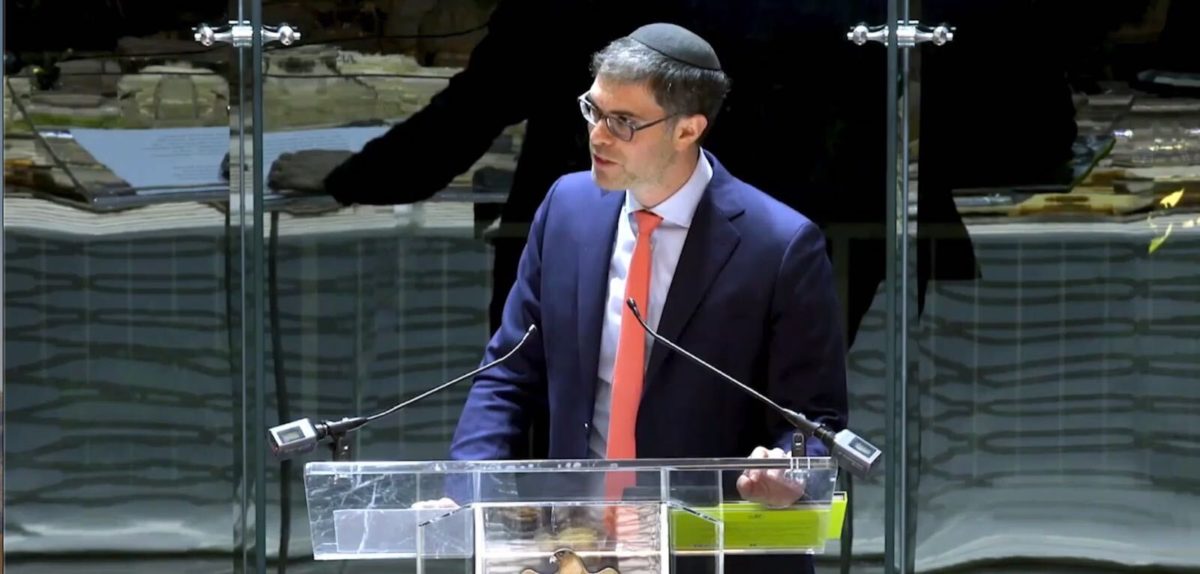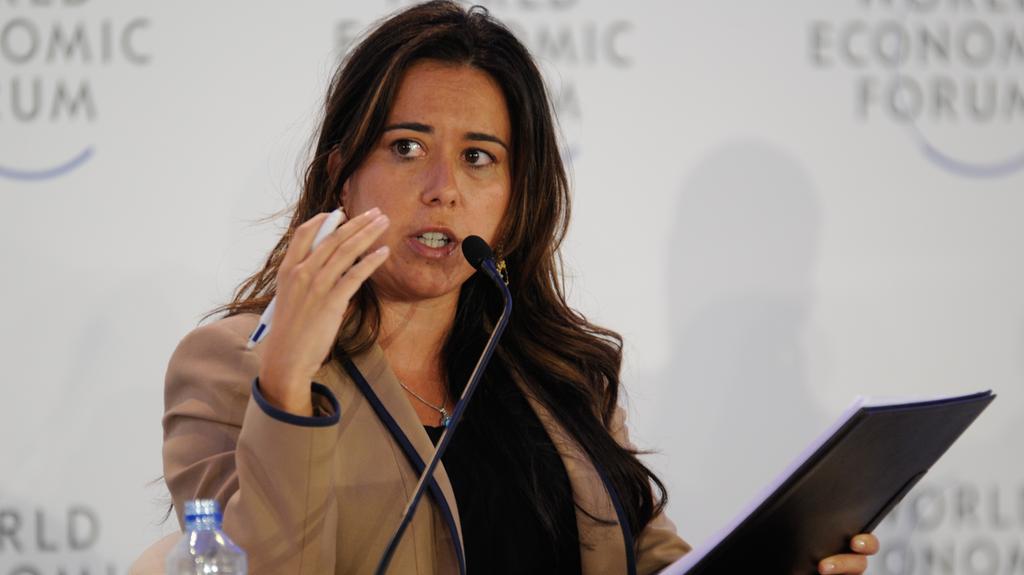UAE chief rabbi: 10,000 Jews could soon live in gulf nation
Rabbi Yehuda Sarna said hundreds of thousands of Israeli and Jewish tourists could soon be visiting Dubai and Abu Dhabi

Screenshot
Rabbi Yehuda Sarna
United Arab Emirates Chief Rabbi Yehuda Sarna predicted during a Jewish Insider webcast yesterday that the small Jewish community in Dubai and Abu Dhabi could soon number in the thousands.
“It would not surprise me if in a number of years, if we’re not looking at 1,000 Jews in the UAE, but we’re looking at something closer to 10,000 — and we’re looking at hundreds of thousands of Israeli and Jewish tourists a year,” Sarna said.
When Sarna was named the inaugural chief rabbi of the UAE in March 2019, the announcement made waves around the world. But, said UAE Ambassador to the United Nations Lana Nusseibeh during the JI virtual event, the appointment marked an important moment in relations between Israel and the UAE, and more broadly, between Jews and Muslims across the globe.
“I think what it demonstrated to colleagues at the U.N. is that this is what is at stake in our work every day in multilateral diplomacy and these agreements that we sign, that ultimately they are about the people-to-people connection,” Nusseibeh said.
Sarna first visited the UAE after New York University — where he has served as a university chaplain since 2002 — opened a campus in Abu Dhabi in 2008.
“When I received the invitation from [then NYU] President John Sexton to come to Abu Dhabi, truth is I’d never heard of it before, I could not have pointed to it on a map and knew nothing of its history or heritage,” Sarna admitted.
“From that first moment when I landed in the airport in Abu Dhabi and was just treated like everyone else, was treated with such a sense of welcoming and hospitality. But [what] it almost immediately did is it began pulling apart my own stereotypes. Even though I had been the one working to combat Islamophobia, nevertheless, there were still remnants, which I had to come to terms with on my own.”
And the recent UAE-Israel peace accord, Sarna said, will have a major global impact.
“I think what we’re looking at is really a tipping point in Muslim-Jewish relations worldwide,” Sarna added. “There is a tremendous, tremendous enthusiasm, curiosity, energy, excitement, about building out not just the political dimensions of the accord, but building out everything else that it’s giving a platform to.”

UAE Ambassador to the United Nations Lana Nusseibeh
Nusseibeh agreed, telling the webcast: “I don’t find it surprising that I spent Yom Kippur yesterday speaking to a synagogue in Rye, [New York].”
Both panelists agreed that the normalization process could serve as a model for future relationships in the region.
“Our foreign minister announced today that we would be seeking election to the U.N. Security Council, the highest body for peace and security,” Nusseibeh shared. “The vote will happen in June next year. And I think it’s an opportunity for us to demonstrate everything that we have been discussing here today about our model, our perspective for the region, a perspective of openness, tolerance, integration, working to find regional solutions.”
Beyond the political and cultural impacts of the normalization agreement, both Nusseibeh and Sarna expressed optimism for the economic opportunities afforded by the normalization of two growing economies.
“Jews who are living in the UAE came, for the most part, because they feel safe there. And for economic opportunity, whether they’re coming from Europe or South Africa, or the United States, or Canada, or Syria, or Lebanon or Tunisia,” Sarna explained. “With rising antisemitism in several countries, and with economies in certain countries not being as strong, they felt like there was opportunity.”
Nusseibeh echoed that sentiment. “I think, on the people-to-people level, everyone is looking for the opportunities for growth,” she said. “We understand we have a massive youth demographic, we need to provide opportunities for that youth demographic around our region. And we’re looking at ways to innovate startups, AI, and all these other industries.”
“What struck me is that while we’re witnessing a moment and an opportunity,” she continued, “we’re also taking on a responsibility, all of us who witnessed that, who supported that, who thought it was the right step for the region. And I think that responsibility is to make this work, to realize this vision for peace in our region.”
Sarna shared with the webcast that he spent Rosh Hashanah in Abu Dhabi this year. He said he met Israelis who had already moved to the UAE in the weeks since the Abraham Accords were announced. And he believes the free movement between the countries will have a long-lasting effect.
“I think one unforeseen consequence of this is that a deeper engagement between Israelis and Emiratis will actually challenge, for many Israelis, their notion of what does it mean to be Arab,” Sarna concluded. “And I think that will very much have a bit of a moderating effect on the Israeli political spectrum.”








